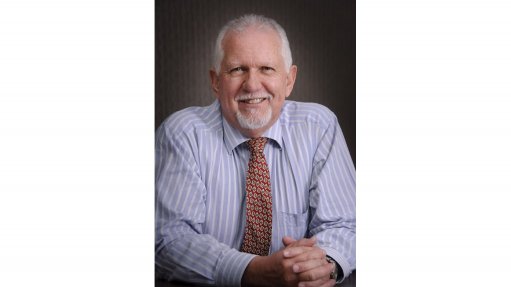
HOWARD JONES There is a need for a definitive line between locally manufactured and imported products in the South African pumps sector
It is of utmost importance to be able to draw a definitive line between locally manufactured and imported products in the South African pumps sector, as locally manufactured products need to take precedence over imports in projects, says industry association South African Pump Cluster chairperson Howard Jones.
Jones suggests that one of the biggest factors contributing to the downturn in manufacturing, besides a lack of new projects, is price and availability. “The cost of a pump is generally relative to volumes manufactured. China can cast and manufacture the pumps at a fraction of the price of a local manufacturer purely because of the volume being pumped out.”
He highlights that South Africa once hosted a 700-foundry strong industry that could cast components for local pumps. This number has dwindled over the past 20 to 30 years to less than 160 foundries.
He reiterates that the onus is on consulting engineers working on the design of water plants and projects – which require the application of pumps – to rethink their approach to design to incorporate locally manufactured pumps.
Jones has managed to align eight new local manufacturers with the cluster in the past two months to broaden the range of pumps manufacturers involved in re-establishing a strong local manufacturer base.
“One of the biggest challenges faced in creating a manageable local manufacturer base is the variety of applications in which the pumps are used.”
Jones suggests that a more extensive and specialised communication channel between the cluster and pumps manufacturers is needed to clearly define the pumps and specifications of each manufacturer.
The difference between a pump used in industrial, mining or municipal applications could be miniscule or could equally be extremely complex, but it needs to be documented and correctly selected for each application, he adds.
He also points out that, although new pumps are regularly introduced worldwide, the technology is based on the same pumping principles – “the only thing that changes are the materials of construction, making them more corrosion resistant or energy efficient”.
Jones stresses that the industry is currently depressed and needs to be uplifted by its shareholders and government.
Increasing labour costs and a pressing need to upskill industry newcomers have also impacted on the state of the industry, and greater incentives need to be made available to local manufacturers to help rebuild the sector, he asserts.
“Better incentives will create a knock-on effect, leading to greater investment in training, upskilling and manufacture.
“Funding for infrastructure refurbishment would also help stimulate the number of projects available which could increase the loading on the local foundries and factories,” concludes Jones.